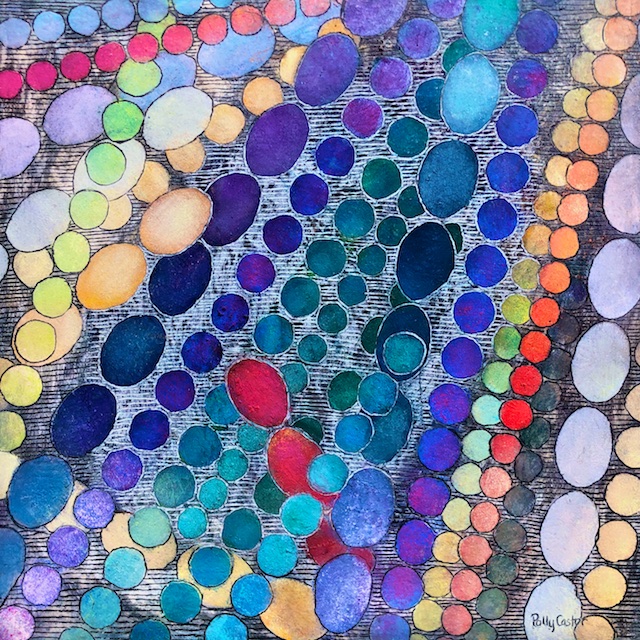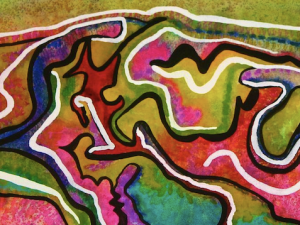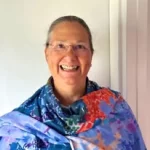Until recently, I’ve had five basic tools in my arsenal regarding decision-making, and now I have seriously upgraded one of them.
First, I ask God–or as my sisters would say, my “gut” (a family euphemism derived from intuition as a deeply internal resonance. with God.) Often I get very clear answers from God. My intuition, or spiritual sense, is well honed by much use. My relationship with the divine is conversational; we have friendly repartee, and I’ve learned to trust answers from that Source, even when I don’t yet understand them. Usually I am blown away later by how right those answers are beyond what I could have known.
But every once in a while, I don’t get a definitive answer. (Our younger daughter would say when you don’t get an answer, it is okay either way.) But when you don’t get a divine answer, you still have to decide somehow!
Our family has a handy rule of thumb that helps, “If in doubt, leave it out.” It works pretty well. If you are equivocating, prevaricating, or uncertain, just take a pass; it frankly is not for you. This wisdom has saved us grief or expense many times over.
The third tool has been helpful for us making group decisions, and was initially suggested by the pastor who married us. We were counseled to ask, “how much do you want to do ____ on a scale from one to ten?” Everyone involved answers that question, and it cuts through feelings and verbiage very quickly to understand whether it is a right idea or not.
Our new epiphany is simply a brilliant refinement of this approach. My husband is reading a book called Essentialism by Greg McKeown, who posits the following idea: only do the things you are a nine or a ten about. Wow. How that could revolutionize my life!
We do a lot of sixes or sevens around here, which if you think about it, those are simply not very good grades.
As an example, consider our recent trip to Mexico. On that we were a seven, and since it used to be anything under a five was a no go, we went. But I knew in my gut both weather and Covid were issues at stake, and it would be one thing to face all that down for something that really mattered to us – a nine or a ten– but not when we were only getting “enough of a green light” (something a friend of ours said when she married someone she shouldn’t have). I suppose it could have been another case of if in doubt, leave it out.
Let’s think about this more broadly. Not getting Covid was a 10. It would have been equally as good to read those same books in front of our own cozy fireplace during those two snow storms, instead of on that beach thousands of miles away. Lastly, fixing some things around our house with the money we spent on the trip would also have been a 10! So we forfeited two 10’s for a seven, which on balance was not ideal.
So what I’m saying through this example is when you are making decisions, you don’t always know what you are really deciding. Looking deeper and more widely, however, we see that if we had stuck to our highest priorities across the board, we would have been happier with a different choice, even if on the surface it sounded less exciting.
When telling this to our older daughter, she cautioned us “not to let the perfect get in the way of the good,” but from where I sit, learning to prioritize more stringently feels freeing– not constricting– and gives far greater clarity. I am realizing I only want to use my life force to do what is a nine or ten for me. I don’t want to waste my time on anything less.
I’m going to be saying “no” much more, and get more comfortable owning what I need, and releasing what I don’t. We all need to learn to honor our time, energy, and money by doing what nurtures us the best, even if it means opting out of something others are urging you to do, or choosing differently than others would.
How other people would make those choices is not relevant; you know what you resonate with and need in a way that no one else does. Valuing ourselves enough to make choices NOT on the basis of what others want or expect of us, but instead on what we need first, strengthens us afterwards to “love our neighbor as ourselves” all the better.
Making decisions based on your own top priorities is a great way respect your purpose in life, a wonderful way to live authentically, and a fabulous way to be happy. From that wellspring of excellence, self care, and internal resonance, you’ll be in great shape to offer your best to the world.
Sometimes you have to decide between two things neither of which are top choices, or possibly both are equal propositions. Those are the moments, in my experience, where God gives clear answers, but also remember, “when in doubt, leave it out.” Maybe neither is necessary and you should avoid them both, or maybe together they are more beneficial and are better embraced in tandem. Not every decision is an either/or proposition. I’ve found I often thrive in both/and choices, as well as some none-of-the-above choices.
Still having trouble making decisions? Our last two helps in making decisions are questions. Ask yourself, “What would you do if money was not a factor?” This can be very revealing and often cuts through to what you most desire. Once you know what it is, you can find a way.
The other favorite question we ask to assist in making decisions is, “What will bless the most?” With this one it is important to remember that it is not just what would bless others most, but what blesses you the most counts too!
Try all of these: asking God, leaving out the things you doubt, choosing only what are 9’s and 10’s for you, and asking these last two questions. You’ll find your decision has become clear, and it is the best one, which you can welcome without regrets.
8 Comments
-
Sound advice Polly! Thanks, I’ll be using your tips!
Nancy L. -
Very rational way to prioritize – thanks for sharing.
-
Loved this – thanks!
-
Good ideas. I think over time I have a similar conclusion about being very intentional about how I use my time, what I do, what I eat, etc. For example, someone offers a dessert. I love dessert and sweets, but I want to make sure the ones I eat are really worth it. I am more likely now days to pass on the dessert if it does not look REALLY good. And trying to make sure I have time for the things are right for me to do, rather than what other people find enjoyable.
-
Yes…I totally agree and thank you Polly so clearly defining a “help to make decision” process. These thoughts you shared are a keeper for me to revisit when in need. You are a blessing to many!💛
-
Author
So glad!
-
Pingbacks
-
[…] February, I wrote a post about decision-making, where I shared what I’d been learning about what to say no to, and what to say yes to. This […]
-
[…] too well, since last year my husband and I promised ourselves to do only 9’s and 10’s (see that blog post here) and have found out pretty fast how hard that is to do. We compromise ourselves all too often, in […]








